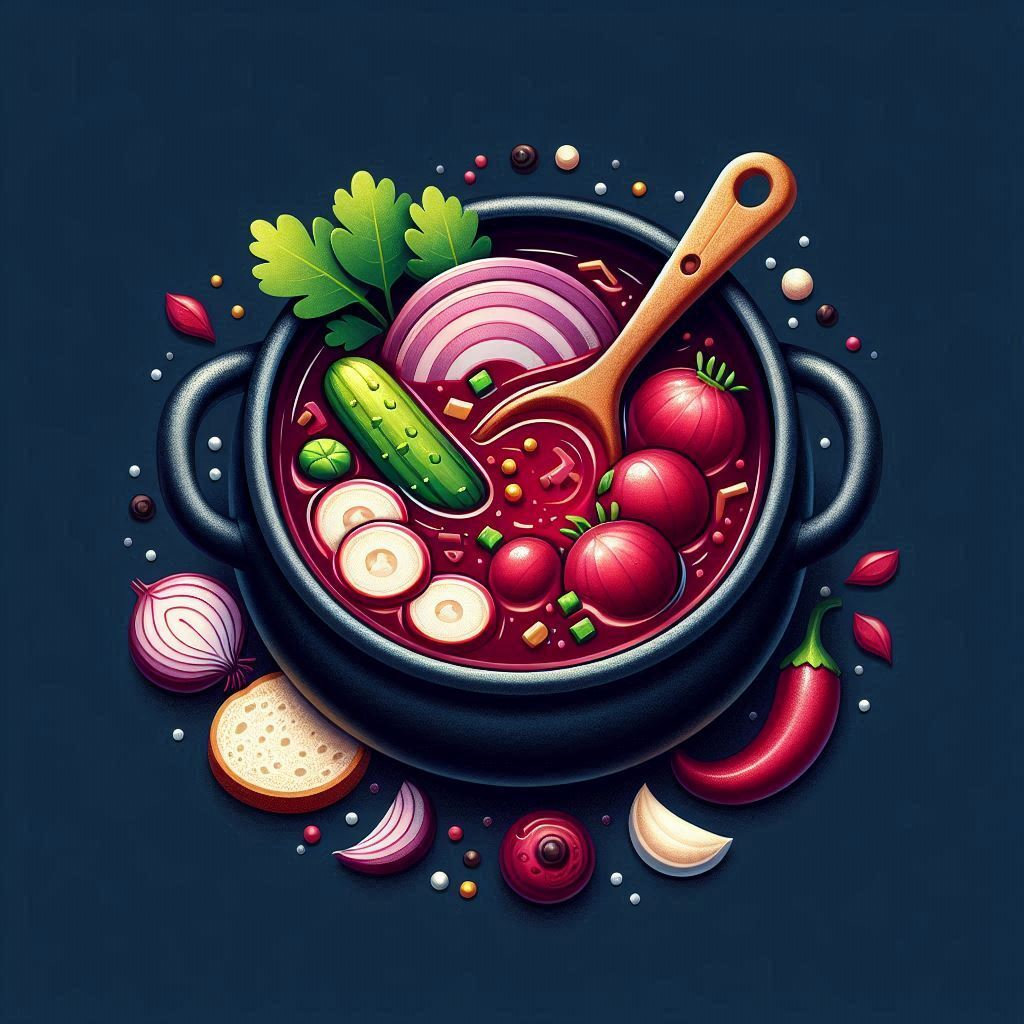
Borscht: A Culinary Journey Through History and Preparation
Borscht, a vibrant and savory soup, holds a cherished place in the culinary traditions of Eastern Europe, particularly in Ukraine, where it is considered a national dish. Its origins can be traced back centuries, with variations found across different regions and cultures.
Historical Roots:
The etymology of the word “borscht” is believed to stem from the Slavic term “barszcz,” meaning “hogweed,” a plant whose leaves were commonly used in the soup’s early iterations. Over time, the recipe evolved to incorporate a wider range of ingredients, including beets, cabbage, and other vegetables.
Regional Variations:
Borscht is a testament to the diverse culinary landscape of Eastern Europe. While the core ingredients remain relatively consistent, regional variations abound:
- Ukrainian Borscht: Known for its deep red color and rich flavor, Ukrainian borscht is typically made with beets, cabbage, carrots, onions, and potatoes. It is often served with pampushky, a type of Ukrainian bread.
- Russian Borscht: Russian borscht is characterized by a sweeter taste and a brighter red color. It commonly includes beets, cabbage, carrots, onions, and potatoes, along with additional ingredients like dill, parsley, and sour cream.
- Polish Borscht: Polish borscht, known as “barszcz czerwony,” is typically made with beets, cabbage, onions, and vinegar. It is often served with uszka, small dumplings filled with mushrooms or meat.
- Lithuanian Borscht: Lithuanian borscht, or “barščiai,” is known for its tangy flavor. It is made with beets, cabbage, onions, carrots, and potatoes, and is often seasoned with caraway seeds and dill.
Preparation:
Creating a delicious pot of borscht requires careful preparation and attention to detail. Here’s a step-by-step guide:
Ingredients:
- 1 large beet, peeled and diced
- 1 large onion, chopped
- 2 carrots, chopped
- 2 potatoes, peeled and diced
- 1 head of cabbage, shredded
- 1 cup tomato juice
- 1/2 cup vegetable broth
- 1/4 cup vinegar
- 1 tablespoon sugar
- 1 teaspoon salt
- 1/2 teaspoon black pepper
- 1/4 cup chopped fresh dill
Instructions:
- Sauté the vegetables: Heat some oil in a large pot over medium heat. Add the onion, carrots, and beets and sauté until softened, about 5 minutes.
- Add the potatoes and cabbage: Stir in the potatoes and cabbage and cook for another 5 minutes.
- Pour in the liquids: Add the tomato juice, vegetable broth, vinegar, sugar, salt, and pepper. Bring to a boil, then reduce heat and simmer for 30 minutes, or until the vegetables are tender.
- Add the dill: Stir in the fresh dill and cook for an additional 5 minutes.
- Serve: Serve the borscht hot with a dollop of sour cream or yogurt, if desired.
Tips:
- For a more intense flavor, roast the beets before adding them to the soup.
- Add other vegetables to your liking, such as parsnips, celery, or green beans.
- Adjust the amount of vinegar to suit your taste preferences.
- Serve borscht with a side of bread or dumplings for a complete meal.
Conclusion:
Borscht is a culinary masterpiece that has stood the test of time. Its vibrant color, rich flavor, and versatility make it a beloved dish across Eastern Europe and beyond. Whether you prefer the traditional Ukrainian recipe or explore regional variations, the preparation of borscht is a journey that celebrates the diverse culinary heritage of this region.



